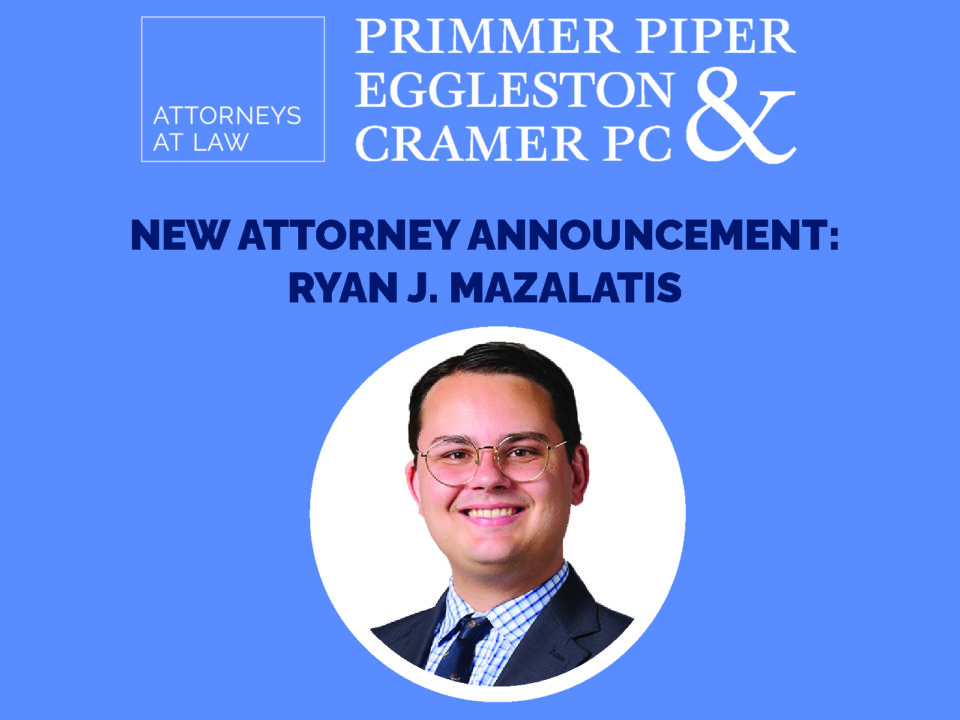
New Hampshire State and Federal Courts COVID-19 Response

Vermont COVID-19 Employee Training Requirement
From the Governor and Administration
Governor Scott continued with his recent history of using Fridays as the day to announce additional reopenings of certain business sectors and other health and safety measures related to the State’s response to COVID-19. The Governor continues to rely on science and Vermont’s trends with respect to COVID-19 cases and updated modeling continues to show improvement in Vermont and thus support the phased reopenings.
In Addendum 12 to the original Executive Order, the Governor is now requiring that all employees and customers must wear face coverings when using public transit (busses, trains and ride services), or while in mass transportation facilities such as airports. This requirement became effective May 1.
The Addendum also expanded operations currently allowed to operate. Effective May 4 the following is permitted:
- Small crews of no more than ten (10) persons per location/job, to perform outdoor work and construction work in unoccupied job sites. An unoccupied job site may be a single unit in a commercial or residential structure. “Unoccupied,” may include sites vacated for the duration of the construction work.
- Manufacturing and distribution operations may resume with a maximum of 10 (ten) employees in any location if they are low-density and ensure employees are at least six feet apart at all times.
- Supporting operations may continue with the minimum number of employees necessary to support curbside pick-up and delivery services, and in accordance with the guidance issued by ACCD.
- And further, effective May 11, manufacturing, construction, and distribution operations may restart with as few employees as necessary to permit full operations while continuing to maintain health and safety.
The Agency of Commerce and Community Development (ACCD) continues to be the point agency for implementation, guidance and questions from Vermonters and businesses. ACCD has updated its Guidance on New Work Safe Additions to reflect the changes announced today.
From the Legislature
The Vermont House and Senate continue to meet and vote remotely on certain COVID-19 response measures. This will continue for the time being with the focus now expected to shift to a new budget adjustment bill to address the remaining months of FY20. Following that, a short-term (perhaps three months) FY21 budget bill will be developed to get the State to late summer or early fall, and then another budget bill for the remaining months of the fiscal year. At some point the Legislature will have to adjourn but we’re not sure yet when that will be.
For now, here is a highlight of some recent activity:
The House passed a bill, S.333, that pauses residential evictions and foreclosures while the State of Emergency is in place. The House added a few minor amendments to the bill that passed the Senate, which means the bill must go back to the Senate for consideration of those amendments. The Senate is expected to concur once they get the bill.
The Senate passed a bill, S.342, creating a presumption for certain workers or classification of work sectors while the State of Emergency is in place and repealed next January.
Finally, the Senate is also expected to pass a bill, S.346, that will provide hazard pay for certain, defined essential workers that exposes them to an increased risk of contracting COVID-19. The benefit will range according to eligibility, and is proposed to cover from mid-March to mid-May and funded through federal CARES Act money. The House will now consider the bill. The Governor has expressed caution and questioned the eligibility of using those federal dollars.




